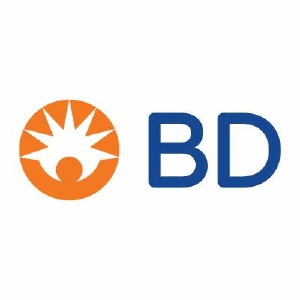

What is the history of Becton Dickinson?
Becton Dickinson (BD) was founded in 1897 by Maxwell W. Becton and Fairleigh S. Dickinson. The two met during their studies at the University of Pennsylvania and decided to start their own business. The company initially focused on selling syringes and needles, but eventually began to produce laboratory equipment and instruments. In the early 1900s, the company began to expand its product line to include a variety of medical products, including blood collection systems, hypodermic needles, and safety needles. In 1962, the company went public and began to expand its global presence, with offices in Europe and Asia. In the 1990s, BD began to acquire smaller medical companies and expand its product line. It has since become a major player in the healthcare industry, providing products and services for research, diagnostics, and drug delivery.
Other Questions about Becton Dickinson
- Do I need to submit references when applying for a job at Becton Dickinson?
Yes, you will likely need to submit references when applying for a job at Becton Dickinson. This is a standard part of the application process for most employers, and Becton Dickinson is no exception. Make sure to ask your references for permission before providing their contact information to the employer.
- What kind of career development opportunities are available at Becton Dickinson?
Becton Dickinson offers a variety of career development opportunities, including tuition reimbursement, professional development programs, mentoring, and leadership development. Employees also have access to online learning tools such as webinars, virtual classes, and e-books. Additionally, the company's Global Talent Development team works to provide employees with resources to help them further their career goals.
- What should I do if I am not offered a job at Becton Dickinson?
If you are not offered a job at Becton Dickinson, it is important to remain positive and take the experience as an opportunity to learn from the process. Consider what you could have done differently or what you could have done better. Reflect on what you learned about the company and the job you applied for. You should also use this as an opportunity to evaluate your skills and qualifications, and to strengthen your application for future opportunities. Additionally, you should take the time to network with industry professionals and explore other job opportunities.
- What type of feedback can I expect after the interview with Becton Dickinson?
Most employers will provide some form of feedback or assessment after an interview with Becton Dickinson. This feedback can take the form of verbal or written comments from the interviewer, feedback from a third-party recruiter who observed the interview, or a score from a numerical rating system. The feedback can provide valuable insight into how the interviewer perceived your performance and may help you adjust your approach for future interviews.
- What should I expect during the interview process at Becton Dickinson?
The interview process at Becton Dickinson typically includes an initial phone screening, followed by a series of in-person interviews with hiring managers and other members of the team. During the interviews, you can expect to be asked questions about your qualifications and experience, your interest in the position, and how you might contribute to the team. You may also be asked to provide examples of your work or to demonstrate your problem-solving skills. Be prepared to provide detailed answers and to show enthusiasm and a desire to learn.
- What is the best way to prepare for an interview with Becton Dickinson?
1. Research the company: Learn about Becton Dickinson’s products, services, and industry. Understand the company’s mission and values, and be prepared to discuss how your skills and experience make you a great fit. 2. Prepare answers: Familiarize yourself with common interview questions and practice your responses. Focus on how your qualifications align with the job description and the needs of the company. 3. Prepare questions: Prepare thoughtful questions for the interviewer about the company, the position, and the culture. 4. Dress appropriately: Dress professionally and conservatively. 5. Arrive on time: Allow yourself enough time to arrive at least 10-15 minutes early.
